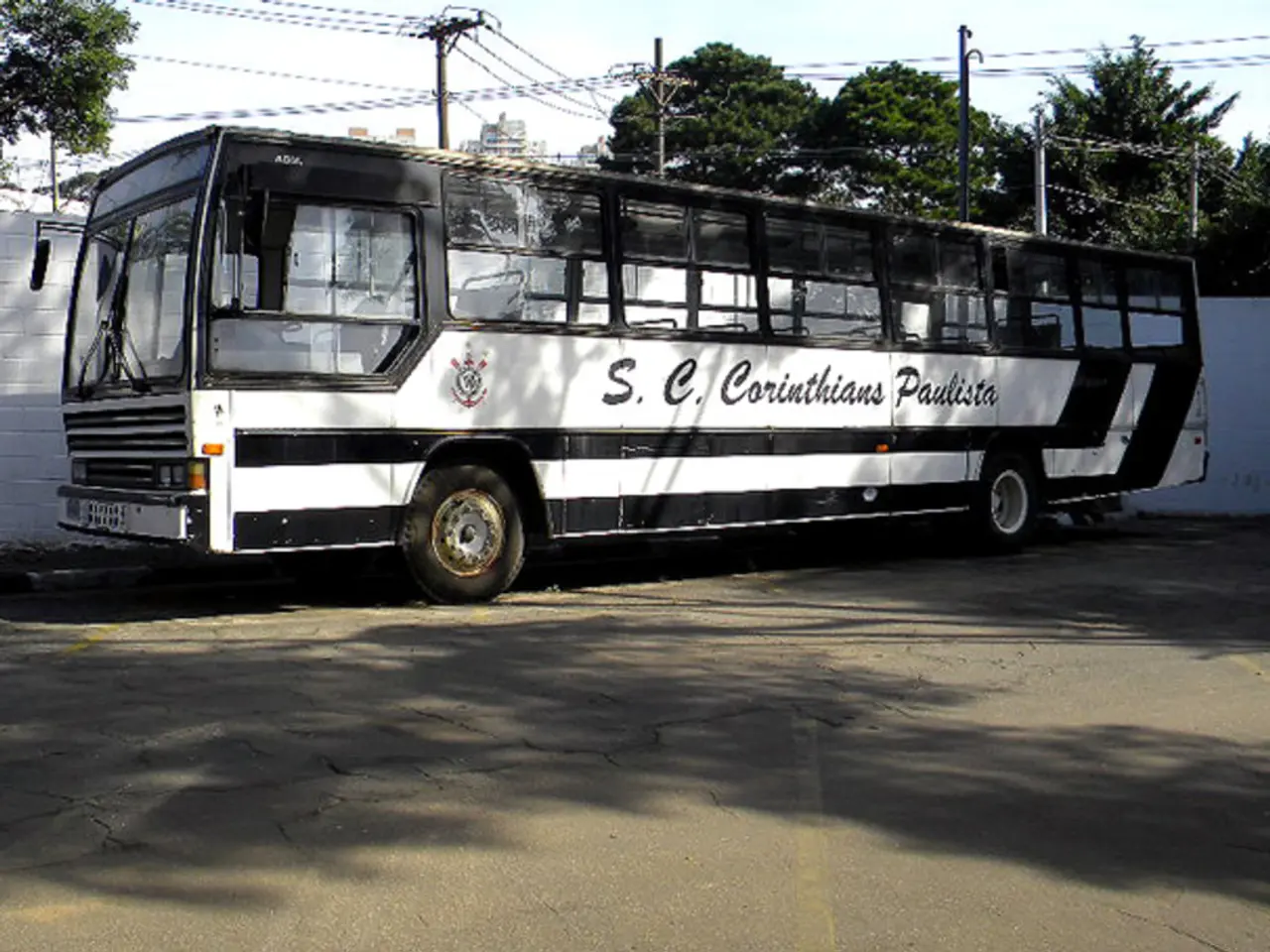Rhine-Kreis Neuss Pledges to Embrace Electronic Mobility Solutions
The local administration in Neuss, Germany, is making strides in the climate-friendly mobility transition with the introduction of a new electric vehicle for daily operations in the Neuss district.
The new measurement bus, an Opel Vivaro-E Cargo, is equipped with technologies for data collection, such as a drone, and offers space for both the surveying team and modern equipment. The acquisition cost of this electric vehicle is approximately 42,000 euros.
The special interior fitting for the new bus costs around 6,000 euros. The specific needs of the surveying field service have been considered in the acquisition of the new electric vehicle, making it capable of accommodating the entire technical equipment needed for the surveying field service.
Michael Fielenbach, head of the Cadastre and Surveying Office, expressed his delight at working in the field service in an environmentally friendly and sustainable manner. He stated, "We are pleased to be able to contribute to the climate-friendly mobility transition and perform our daily operations in a more eco-friendly way."
The idea of acquiring an electric vehicle for the surveying field service has been pursued for some time as part of the fleet modernization initiative. The lack of a suitable electric vehicle for the daily mileage in the Neuss district that could also accommodate the entire technical equipment was previously hindering the implementation of an electric vehicle.
The new electric vehicle offers several benefits and positive impacts. It produces zero tailpipe emissions, reducing local air pollution and carbon footprint during field operations. This supports municipal goals for sustainability and climate protection.
Additionally, electric vans like the Opel Vivaro-E Cargo have lower fuel and maintenance costs compared to conventional combustion engine vehicles, leading to operational efficiency and cost savings. The quiet operation and torque characteristics of electric light commercial vehicles make them well suited for the stop-and-go nature of field surveys in urban areas.
By integrating electric vehicles into fleet services, the Neuss administration actively promotes greener mobility and compliance with Germany’s and the EU’s emission reduction targets. The local administration’s adoption of these vehicles signals commitment to innovation and sustainability, encouraging other public agencies and private companies to consider electric fleets in their operations.
The funding programs used for the measurement bus are "Progress NRW - Low-Emission Mobility" and "Second Co-financing Directive". Department Head Harald Vieten stated that the bus is specifically equipped for the needs of the surveying field service.
This shift towards climate-friendly mobility in the Neuss administration is a significant step towards a more sustainable future, demonstrating the potential for electric vehicles to revolutionize various sectors and contribute to global emission reduction efforts.
- Other public agencies and private companies might consider adopting electric fleets in their operations, following the lead of the Neuss administration.
- The acquisition of electric vehicles, such as the Opel Vivaro-E Cargo, in the field of environmental science, like the surveying field service, can contribute to a more eco-friendly lifestyle.
- The integration of electric vehicles into fleet services, like in the Neuss administration, can help achieve compliance with Germany’s and the EU’s emission reduction targets, thus supporting global emission reduction efforts.
- In addition to traditional science fields, technological advancements, such as electric vehicles, can play a crucial role in climate-change mitigation efforts, as demonstrated by the Neuss administration's new measurement bus.




